Almost everybody's got a sweet tooth. For me, it sometimes reveals itself in my chocolate habit.
Fortunately for me – and probably you, dear reader – the health effects of chocolate mostly lean to the positive side.
Maybe we don't have to feel so guilty about a little indulgence? Enjoy the piece and make your own decision – but at our house? The chocolate is staying around.

While taking a bite of chocolate, sometimes you don't think back to the source. Chocolate comes from seeds of Theobroma cacao, the "cacao tree" – often stylized "cocoa" due to the final product!
The cacao tree is native to the tropical regions of South America and Mesoamerica and provides those large seeds that often referred to as "cocoa beans."
To get chocolate from the cacao pods, seeds are ground, fermented, and treated with milk and sugar to counteract cacao's natural bitterness.
As early as 1900 B.C., ancient pre-Olmec societies in modern-day South America used fermented cacao grounds to make a sweet, chocolatey drink that they enjoyed as part of their evening meal.
When Europeans began colonizing the Americas, the explorers sent this early version of chocolate back to the Spanish court, where it was an immediate hit. Since then, chocolatiers around the world have refined the art of making chocolate, experimenting with milk, sugar, fat, and cream to create the variety of chocolate we all know and love today.
Dark chocolate is the purest form of chocolate and the closest to that original Mesoamerican cacao drink. While all chocolate is made of "cocoa solids"—the dry, ground, cacao seed powder that gives chocolate its characteristic taste—dark chocolate is unique in that it has the highest concentration of cocoa solids (around 35% or higher). This gives it a darker appearance than other varieties – and a more bitter taste.
Milk chocolate, on the other hand, contains around 10% cocoa solids and 12% milk solids. This means that it's actually more milk than cocoa, and has a lighter, sweeter taste as a result. Light chocolates and dark chocolates cover a wide range of milk and cocoa concentrations, with a flavor that varies as a result.
White chocolate isn't chocolate at all—with no actual cocoa solids, white chocolate is made up of the cocoa butter pressed out of the ground cacao seeds, then sweetened with milk and sugar for a rich, light flavor.
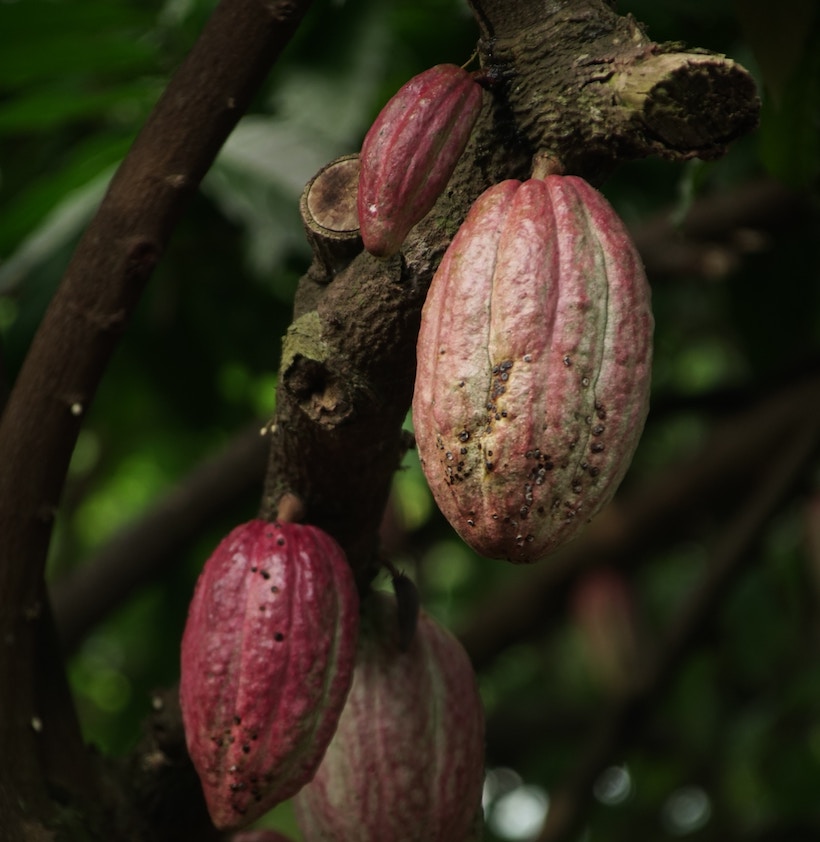
Most of the health benefits from chocolate come from the active ingredients that can be found in raw cacao seeds before they're treated and processed.
Those ingredients include compounds like:
Antioxidants are commonly found in fruits like strawberries, grapes, plums, and cherries, along with a wide variety of other food. Cacao has high concentrations of these antioxidants, which some believe may have anti-aging properties. In general, antioxidants help repair cell damage, which can reduce visible signs of aging and prevent some forms of cardiac disease.
Polyphenols are a group of compounds that are found in foods like apples, pears, cherries, and most berries. Research into the health benefits of polyphenols are still ongoing, but researchers believe that they could help prevent the onset of chronic or cardiovascular disease.
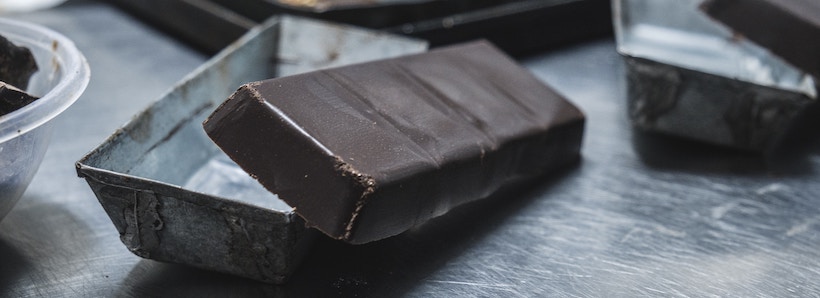
The stimulant theobromine is found in higher concentrations in the cacao seed than in any other natural source, but it can also be found in some types of tea leaves or the kola nut.
Theobromine is white and slightly bitter and acts as a less intense stimulant than caffeine and other naturally-derived stimulant compounds. More specifically, it stimulates the action of smooth muscle tissue while also providing mild diuretic effects. This is also the compound that makes chocolate so dangerous to cats and dogs, as they can't eliminate theobromine as quickly as humans.
Caffeine is the most commonly used psychoactive drug in the world, and 85% of Americans consuming caffeine in one form or another daily. Caffeine works by blocking the neurotransmitter adenosine's receptors – adenosine signals "tiredness" to the brain. With adenosine, the brain doesn't register the body's fatigue.
While the coffee bean is the most important source of caffeine in nature, cocoa beans have a high concentration of the same compound.
Cocoa butter is full of fats and fat compounds that give chocolate its rich, smooth taste. It consists of monounsaturated oleic acid and several saturated fats that – especially when used in the chocolate-making process – give chocolate its characteristic smell and taste.
Chocolate is loaded with vitamins and minerals, including Vitamins C, A, and D. Some minerals in chocolate include magnesium, potassium, and calcium.
The active ingredients listed above go a long way towards making chocolate as healthy as it is delicious, but some of the more specific health benefits were a bit of a surprise!
According to ongoing research by scientists around the world, the health benefits of chocolate include – but are not limited to – benefits like:

According to a Swedish study on the health benefits, a single daily serving of chocolate can lower your risk of heart disease and reduce blood pressure! In a similar study with a broader range of participants, the researchers found that people who eat moderate amounts of chocolate show reduced risk of heart-related diseases over a long period.
The secret behind chocolate's heart-healthy properties lies in dark chocolate's high levels of flavanols, chemical compounds that increase the elasticity of blood vessels and help the heart pump blood quickly throughout the body. These flavanols also help to provide dark chocolate's characteristically bitter taste!
According to most studies, heart-healthy benefits of dark chocolate were only apparent when the participants ate moderate amounts of the sweet. Unfortunately for us chocolate fans, overeating chocolate can undo these fantastic benefits, due to the high amounts of sugar and fat present in most consumable chocolate.
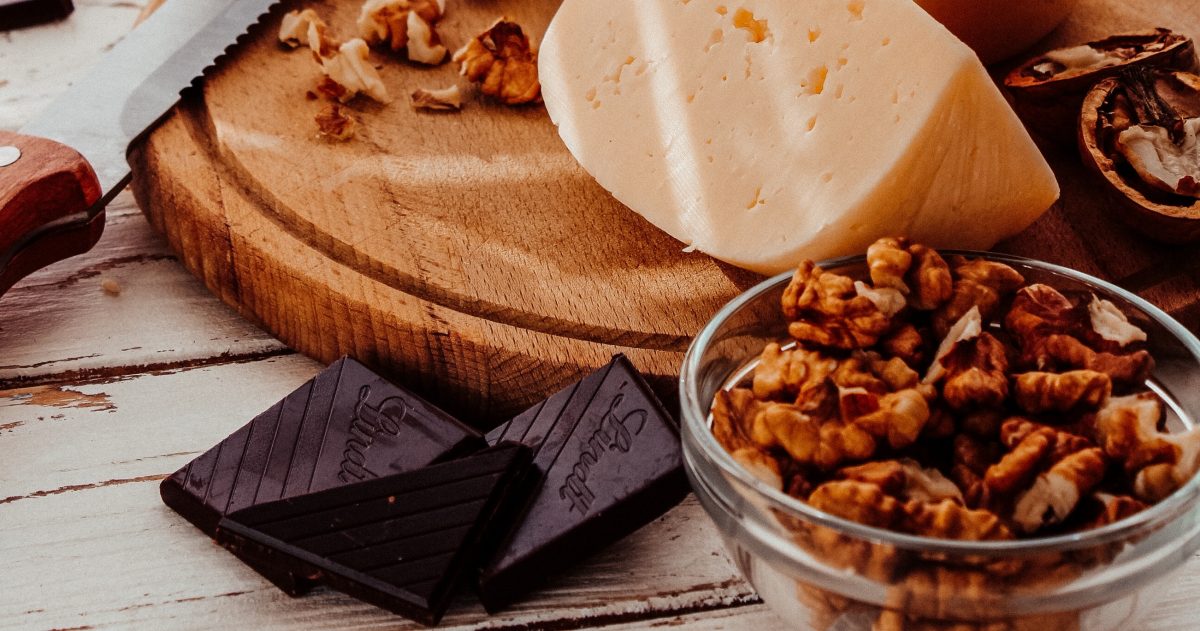
Moderate amounts of chocolate can reduce your risk of stroke and other cardiovascular health issues. As always, the key is in moderation, as overeating chocolate can cause other health issues, but a little bit might go a long way towards keeping your blood healthy and clean.
According to a 2017 study on more than 85,000 participants, there is a strong association between moderate chocolate intake and reduced risk of stroke. A similar study of 20,000 participants reached the same conclusion, and the consensus seems to be: chocolate is good for you.
As mentioned above, the flavanols found in chocolate likely help keep your veins and arteries elastic and healthy, which helps your heart move blood past any potential blockages. In addition, the high levels of stearic acid in cocoa butter act as a softening agent to help reduce the risk of clots.

One study looked at the effects of chocolate on a wide range of participants before and after they had worked out for an extended period. Researchers found that participants who had eaten dark chocolate before a strenuous workout had higher levels of blood plasma glucose and were able to bounce back from a tough workout faster than participants who had received a placebo.
Another study from 2012 went a step further and suggested that chocolate milk may be a great way to aid recovery after a hard workout, thanks to chocolate's antioxidant properties combined with the carbs and sodium found in low-fat chocolate milk.
As in most of these sections, moderation is vital. But so it isn't lost: most research seems to agree a quick bite of dark chocolate after the gym can provide your body the fats, proteins, and antioxidants it needs to recover.
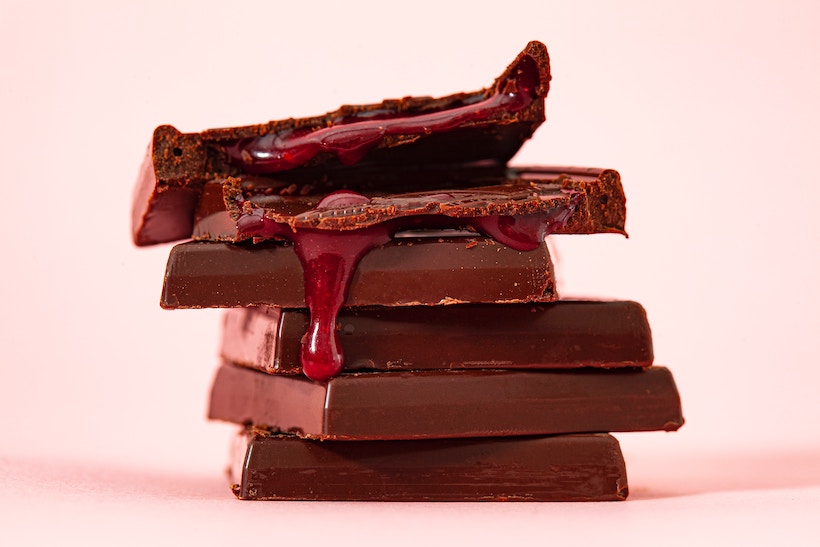
As discussed with strokes, small amounts of dark chocolate can help to greatly reduce the risk of blood clots within your arteries and veins.
Vascular endothelium, or the lining of all the organs connected to the heart and responsible for pumping blood, can harden or grow clogged over time. This is where moderate amounts of dark chocolate can be extremely helpful.
Dark chocolate contains high amounts of epicatechin, a compound that increases vasodilation. This means that the blood vessels in your body will be more flexible and open so that the blood can pass swiftly throughout the circulatory system. Also, chocolate's anti-inflammatory properties help to keep everything moving swiftly.

High blood pressure or hypertension is a medical condition that results in the heart working overtime to pump blood throughout the body. This puts undue pressure on your veins, arteries, and blood vessels, which may struggle to keep up with the increased tension in the system, and can lead to severe health conditions, including strokes and various heart diseases.
According to a 2015 study, however, chocolates with high amounts of cocoa can help combat hypertension and return your body's natural blood pressure levels. The antioxidants and phenolic compounds present in dark chocolate help increase the dilation of all relevant blood vessels, as well as reducing swelling throughout the arteries and working to prevent any clots that could lead to increased blood pressure.
Moderate amounts of the right kind of chocolate can go a long way towards keeping your heart healthy and your blood vessels strong.

Once again, the high flavanol levels in dark chocolate is the cocoa superfood that provides a lot of the sweet treat's health benefits. The most common flavonoid found in chocolate is epicatechin, which, aside from reducing the risk of blood clotting, can have profound effects on the chemistry of the brain.
According to a 2013 study, the antioxidant compounds found in chocolate stimulate neurological activity and provoke angiogenesis, neurogenesis, and changes in neuron morphology. This means that the antioxidants stimulate the growth of new blood cells, the development of new nervous tissue, and help the brain retain its shape and form.
Overall, these brain-healthy benefits will help the brain continue operating at its highest level. Chocolate might keep your mind sharp and ready to absorb new information by fighting against the natural aging process that can sometimes degrade your brain's function.

On a similar note to the above entry, moderate amounts of dark chocolate can help your brain even if you're not worried about dementia or early-onset Alzheimer's. Normal brain function can get bogged down by daily life, but a little bit of dark chocolate can make sure you're as sharp as ever and ready to go!
In addition to the above, a 2018 study found that moderate amounts of dark chocolate can boost brain activity and sharpen memory in adults of all ages. The researchers found that small amounts of cocoa-high dark chocolate increased alpha and beta brain activity while reducing delta and theta brain activity. In other words, the type of brain activity associated with relaxation, calmness, and quick thinking increased, while the brain activity associated with brain "shut-off" or downtime decreased significantly.

More than four percent of the population will suffer from colon cancer at some point in their lives. Colon cancer carries only about a sixty-four percent chance of treatment – it is unfortunately not often recognized and treated in time. While we are fortunate to live in a time that most cancers are treated quickly and effectively, prevention is a major part of avoiding cancer. For some good news – high-cocoa dark chocolate might help prevent colon cancer.
Because of chocolate's antioxidant properties, researchers from the above study found that injecting cocoa extracts directly into cancer cells shut down the cell growth process and kept cancer cells from dividing and growing any further. According to a 2017 study on the impact of chocolate in the diet, Danish researchers found that moderate amounts of dark chocolate could reduce the risk of several heart diseases as well as blocking the growth of cancer cells.

According to the American Diabetes Association, the number of adults in the United States who struggle with diabetes is around thirty million. Obviously, this is a health condition that affects a significant part of the population on a daily basis. Still, while dark chocolate cannot heal diabetes, you might be surprised to learn it can help to reduce its risks and manage its symptoms.
The same flavonoids that are responsible for much of dark chocolate's health benefits come into play once again when it comes to fighting diabetes.
By improving the "connection points" within the nervous and muscular systems, dark chocolate can help the body pick up insulin and process it faster and more effectively. Because insulin resistance is one of the main underlying problems behind any type of diabetes, chocolate's ability to reduce that insulin resistance might help in managing the symptoms of diabetes and reducing its impact on daily life.
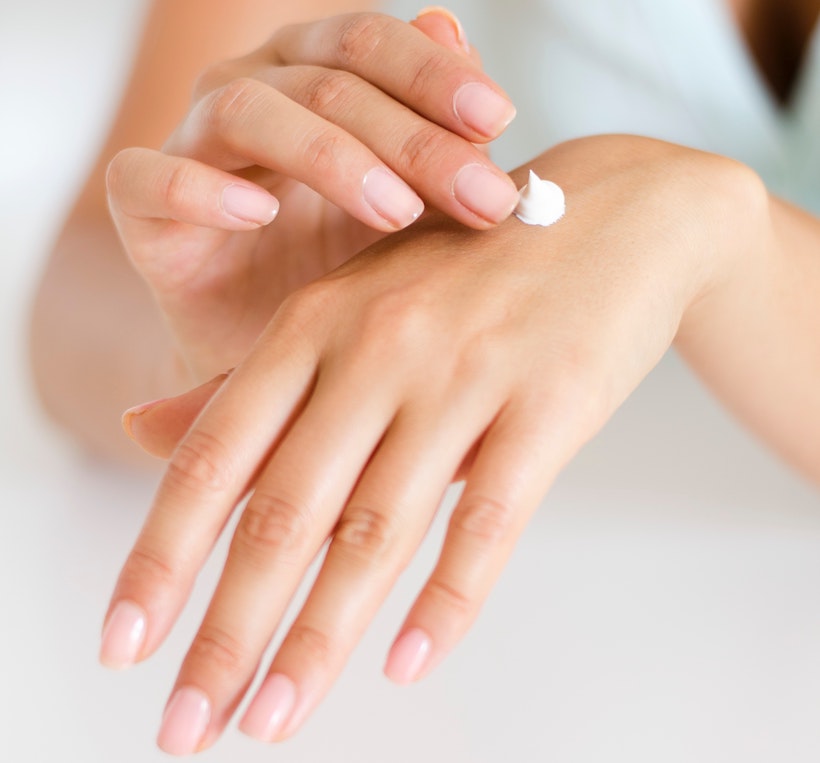
While it may not seem as important as some of the other benefits mentioned above, chocolate can boost your skin's health and leave you with a natural glow!
We've already looked at the benefits of epicatechin in improving your body's internal resilience and anti-aging properties, but that same compound can have a very similar impact on the outside of your body as well.
According to a 2014 study, the natural compounds derived from cocoa can serve as a protective barrier over the skin so it won't have to weather the daily wear and tear of everyday life without extra support. This results in skin that feels smoother, softer, and younger for more extended periods, even for those of us who don't have time for an intense skin care regiment!
While chocolate certainly has loads of health benefits that make it an attractive choice when you're in the mood for something sweet, there are (unfortunately) some adverse health effects to take into consideration.
Also – because the health benefits of chocolate are mostly present in its most raw, bitter form, the chocolate we enjoy daily has usually been treated and processed until those health benefits are diluted. Keep the extra ingredients in your chocolate in mind as you read the next sections.
As mentioned above, most chocolate that we eat has been mixed with fat, sugar, milk, and various spices to give it the flavor we know and love. Unfortunately, this means that eating high amounts of chocolate can lead to weight gain and the associated health risks of metabolic syndrome.
Phenethylamine, one of the major compounds in most chocolate, is associated with various psychological disorders like ADHD if present in high enough doses.
Similarly, phenethylamine can block some neurological functions, which may make brain activity more difficult with high doses of the compound.
Theobromine is another compound in chocolate, one of the stimulants we mentioned above. Aside from being dangerous for most pets, it can also carry some negative side effects for humans as well.
Because theobromine works as a stimulant, it can have adverse effects on your brain chemistry and even lead to mild depression.
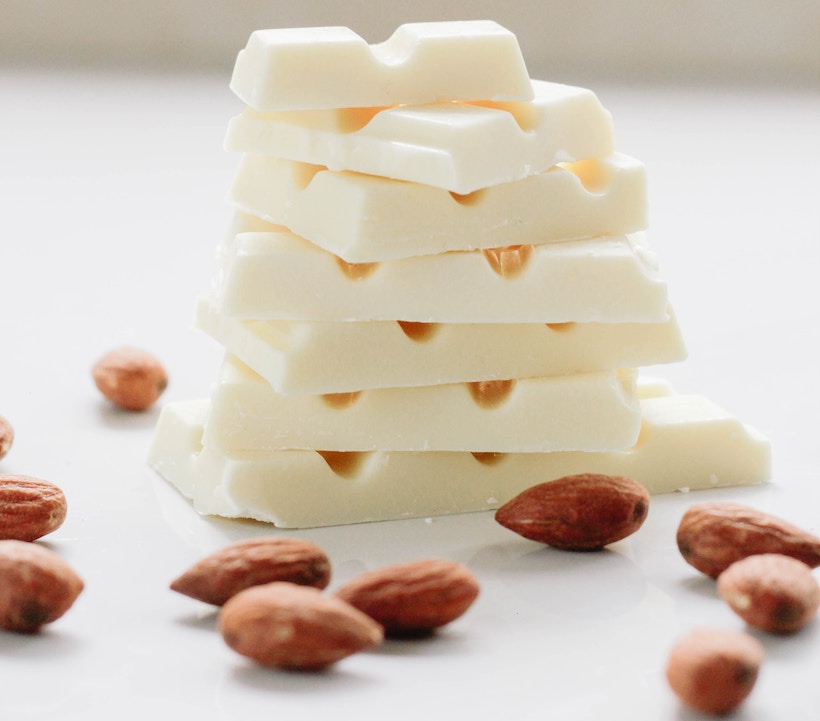
As mentioned earlier, theobromine acts as a muscle stimulant and a mild diuretic.
While that can lead to a lot of positive health benefits for humans, it can also be wildly dangerous for cats and dogs, so make sure you keep your chocolate away from your pets! They don't have the ability to eliminate theobromine at the same rate as humans, so you need to watch that they don't get into chocolate.
According to some studies, eating large amounts of chocolate can lead to an increase in acid-reflux activity.
As a result, if you're eating a lot of chocolate regularly, you may experience an increase in heartburn and other unpleasant esophagus conditions.
People are allergic to chocolate (or a naturally occurring compound in it), but it isn't a widespread allergy. However, because chocolate comes with additives and spices before it makes its way to you, read the label on your favorite brand carefully to make sure there aren't any additives to which you may be allergic.
Concerningly, some of the leading producers for cocoa beans around the world have been reporting lead contamination in their farms.
Lead poisoning is extremely dangerous for even the most casual chocolate-lover, so you may want to check your chocolate source before enjoying it. Lead can be especially harmful on a developing brain – this is one to watch, and we'll see how it shakes out.
Despite its ostensible cancer-fighting properties, dark chocolate or cocoa extracts may have on their own, some of the additives in chocolate may increase your risk for various forms of cancer.
This goes especially if you're eating more than the recommended daily amount of dark chocolate or cocoa products.
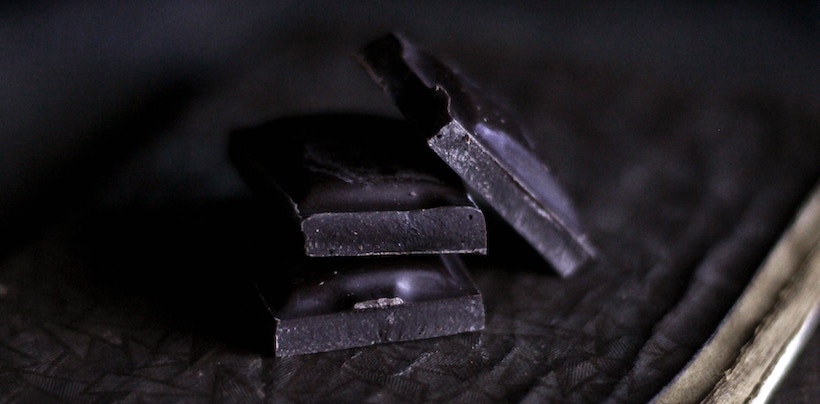
Overall, the key thing to keep in mind for chocolate consumption is moderation.
Because all chocolates (even dark chocolate) are made with fat, sugar, and cream, overeating chocolate can be dangerous for your health and can result in lasting side effects.
However, if you're worried about your sweet tooth getting the better of you, don't worry about cutting chocolate out completely... A moderate amount of chocolate can have enormous benefits for your health and daily well-being!
If you're allergic to chocolate or the compounds inside, or otherwise have a concerning reaction – yes, you should avoid chocolate. Chocolate is a convenient package for many things, but you can find substitutes elsewhere.
For other folks, in general, aim to stick to dark chocolate rather than milk or white chocolate. If you're worried about watching your weight, you may want to avoid chocolate in favor of cocoa powders or even carob (a similar, if lesser-known, compound) treats. Otherwise, there's no real reason for anyone to avoid chocolate like the plague.
Practically speaking, some of the compounds found in chocolate (Theobromine, for example) can be dangerous in high doses. This is another reason to stick to only the recommended serving size of dark or milk chocolate.
Take the time to double-check the chocolate that you're buying. If your favorite brand of chocolate is extremely high in sugar or fat, you may want to look for a darker brand or find a new alternative that doesn't have as many dangerous additives. Ultimately, as long as you stick to a moderate amount of chocolate and balance your diet out with other healthier staple foods, dark chocolate's health benefits outweigh the risks associated with indulging your sweet tooth in any other way!
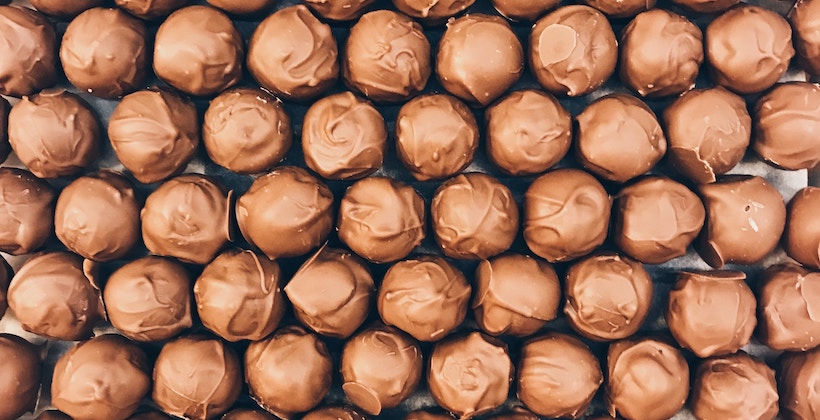
I told you I was a fan of chocolate, and I was still a fan after I finished the research on this piece. There are certainly downsides to chocolate, but on balance, it's a fine indulgence in moderation.
So, to your heart – and your sweet tooth – share some dark chocolate with me?
Sometimes I eat chocolate (70% cacao) right afterI eat breakfast.
Very nice article — it really makes it clear that there are many health benefits to eating dark chocolate (and yes, the 'dark' part is important — it has far more health benefits than light chocolate). The article mentions flavanols. Flavanols are a type of flavonoid. And flavonoids are a type of polyphenol.
Polyphenols are a category of chemicals that naturally occur in most plants. Polyphenols are micronutrients that act as antioxidants — they protect cells from damage caused by free radicals. There are different types of polyphenols — one type being flavonoids. Going deeper, there are a few types of flavonoids — one type being flavanols.
It’s been shown that flavanols can help treat or improve cardiovascular diseases, diabetes, weight management difficulties, neurodegenerative disease and digestion issues. Flavanol-rich foods can also boost stem cell function, thereby slowing down stem cell-related aging (an important factor in aging in general). Which brings us to dark chocolate. Cocoa is one of the richest sources of flavanols, and dark chocolate has a very high cocoa powder content.
If interested, read more about the good stuff in dark chocolate — antioxidants and flavanols, and more — here: https://brighter-health.com/anti-aging-why-antioxidants-lead-the-fight-against-aging/
Thanks for the kind words – glad you enjoyed it!